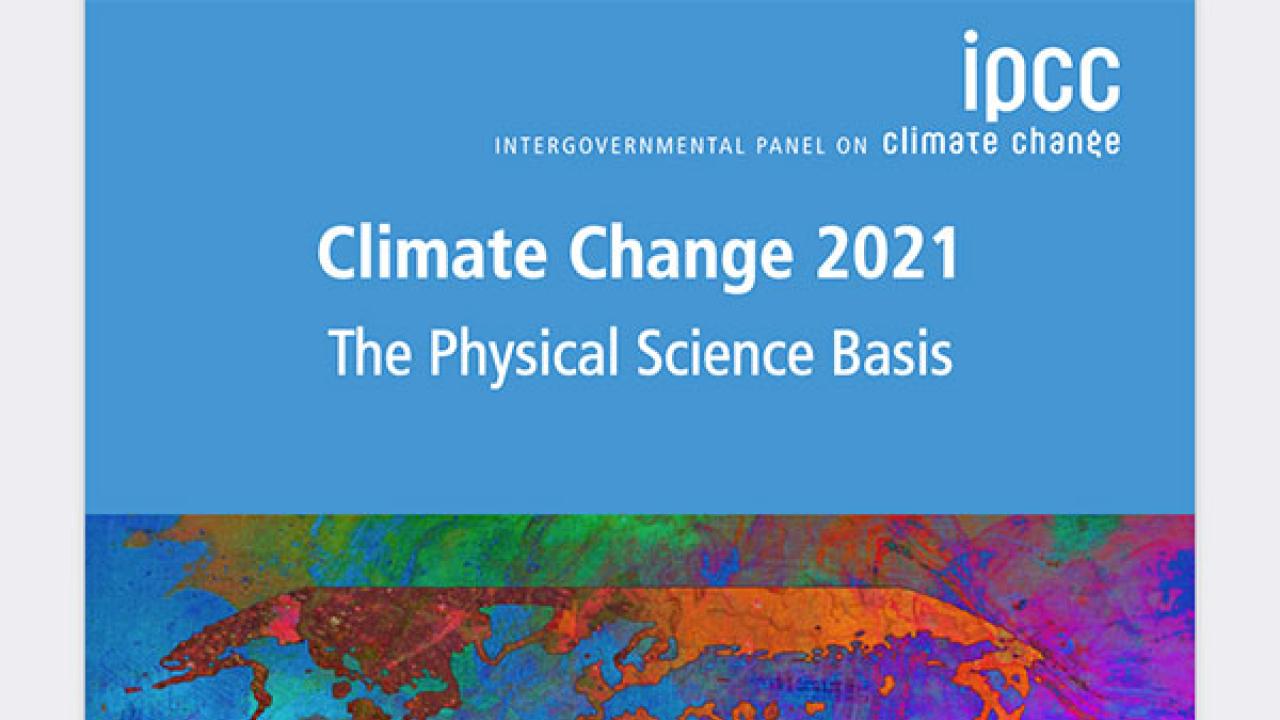
The Intergovernmental Panel on Climate Change has released its latest report on the scientific basis of climate change. Erika Coppola, a climate scientist at ICTP and an author of the report, states: “we need to act fast and reach net zero emissions within 2050”.
The Intergovernmental Panel on Climate Change (IPCC) is the organization of the United Nations which brings together scientists from all over the world to assess the science of climate change. The IPCC regularly releases assessment reports in which the scientific basis, impacts, and future risks related to climate change are evaluated. These evaluations are carried out by the three IPCC Working Groups and together form the full assessment reports that are issued by the IPCC every six or seven years.
On 9 August, the results obtained by the IPCC Working Group I, focusing on the physical science basis of climate change, were disclosed. The outlined scenario is seriously worrying and, according to the scientists who worked on the report, measures must be taken immediately. The Working Group I report is the first installment of the IPCC’s Sixth Assessment Report (AR6), which will be completed in 2022.
Among the authors of the Working Group I report is Erika Coppola, a climate scientist in ICTP's Earth System Physics section. She agreed to answer to some questions to clarify the major points of this first part of the assessment.
The situation drawn by the Working Group I is very serious. What are the main issues that emerged?
We have known for many years that the world is warming. But now, thanks to this last report, we can state as a fact that this widespread, rapid and intensifying warming is unprecedented in thousands of years and it is due to human-caused emissions. As a consequence, extreme climate events such as heat waves, heavy rainfall and drought will be more frequent and more severe everywhere.
Again, for the first time, we can state that climate change is already affecting every region of the world and all this will continue with increase global warming.
The other important aspect that emerged is that, unless there is an immediate and large-scale reduction of the emissions of greenhouse gases, limiting warming to 1.5 degrees Celsius cannot be reached. This is in fact the target that was agreed as a limit within the Paris Agreement; beyond this threshold there could be no way back for some of the changes that could be irreversible. These reductions, finally, will also allow to improve air quality.
What measures should be taken globally? And how fast?
If we want to stay below the limit of 1.5 degrees Celsius by the end of the century, we need to reach net zero emission by 2050. But, this would not automatically imply that the global mean temperature will not rise above that limit before. In fact, there will likely be short periods of overshooting in which it will, returning then to stabilize to the above-said limit.
How will these overshootings affect us and the environment?
Even though these overshooting are temporary, it does not mean that the consequences that we are already seeing today would be. For example, we will continue to lose ice mass in the Antarctic, and that could not be recovered, so it will be lost forever.
You are a climate scientist at ICTP. What does your current research consist of?
We work with regional climate modelling, which means that we try to assess the impact of climate change at the regional scale. In particular, we use mathematical models based on fundamental physical equations. Assuming different emission pathways, we are able to simulate the climate in a particular region of the scale of the European continent, Africa, South or North America, and so forth. What we do, in other words, is analyze the impact of climate in those regions, for example how mean temperature is changing, the presence of extreme precipitations, storms, tropical cyclones, and what it means for the water cycle in that region, the availability of water in the soil, etc.
What was your role in the making of the Working Group I report? What issues did you deal with specifically?
What I did for the report is very connected to the research I carry out at ICTP. I was working as the leading author of the twelfth chapter of the report, entitled: “Climate change information for regional impact and for risk assessment,” and I also coordinated the sub-section C.2 of the summary for policy makers (SPM), the summary that needs to be approved by the governments. This section belongs to the "Climate Information for Risk Assessment and Regional Adaptation".
Speaking locally, are there different responsibilities? Are there differences in the measures that should be taken by different countries?
Climate change is already affecting every region of the world and it will keep doing so. A new concept has been introduced: of climatic impact-drivers that help to translate what some physical changes of the climate mean for the society and ecosystem in a specific region. The number of projected changes of these climatic impact-drivers is increasing in every region, highlighting the fact that global warming is happening everywhere. Every region is impacted in a different way, the number and the combination of change is different, but the issue is global.
Is there something significant that we can do as individuals? Can you give examples
Yes, of course! The change must start from the bottom.
For example, if one decides to renew the house, it could use renewable energy sources instead of fossil fuel. We could try to use the existing technology which allows us to save energy. Remember to switch off electronic devices when they are not used. But also reduce meat consumption, especially beef, because farming is one of the sectors where the emission of CO2 is significant.
Also try to use a bicycle, walk or use the bus to go to work. Recycling is also another big help.
--Luca Papapietro













